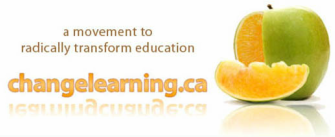Read more
|
Over 40 billion dollars a year is spent in Canada getting our children from Kindergarten to Grade 12,[i], yet over 40% of our youth fail to meet expected performance levels for basic subjects[ii] and almost one quarter of our children fail to graduate with their peers.[iii]. Students are disengaging grade by grade[iv], a trend illustrated by their increasing dislike for school[v], declining academic achievement[vi] and rising rates of teenage depression[vii] and suicide[viii]. Contrary to Canada’s most fundamental democratic tenets, minority and low-income children are the hardest hit[ix]. Public opinion polls show confidence in the education system is at an all-time low[x], home schooling is growing exponentially and the number of children attending private schools has doubled in the past 25 years[xi]. An ever increasing number of factors point to a deeply flawed system that is failing our youth and our society. We see this failure reflected daily on our streets, in our malls and in the news. Learn more about signs of trouble.
Read more
0 Comments
How Did We Get Here?
Our schools are falling short—not because of poor teaching, apathetic youth or lack of rigorous standards but because the educational system of today was built for the needs of a bygone era, using the knowledge available at the time it was created. Significant changes in family, work, technology and culture have radically shifted the context for education in this country, yet the system remains essentially the same. Developments in neuroscience, brain imaging and anthropology now provide concrete answers about how the human brain actually learns and matures, but this relatively recent knowledge is not reflected within the existing educational structure or classroom practices. Decades of “educational reform” calling for higher standards and a return to the basics have served only to drag an already out of date system even further in the wrong direction. These types of simplistic and short term bandages directly contradict what we really know about the circumstances and opportunities that children need to learn, flourish and succeed. As a result, many students are frustrated and disengaged, parents are confused and disappointed, and educators are defensive and worn out. Learn more about the history of education. Read more Changing large systems is difficult. When you grow up and succeed within the traditional system, it’s hard to see what’s wrong and it’s even harder to imagine that we can do it any other way. Traditional schooling models are entrenched in our collective psyches and in our culture and, as a society, we have invested a great deal in keeping them the way they are. Sometimes, it’s easier to rally behind the very loud voices of “educational reform” than to dig deeper, think longer term and contemplate a complete re-envisioning of the system as we know it.
Read more John Abbott and Heather MacTaggart discuss why the education of children is a concern of the whole society.
Many of us have a deep desire to make the world around us a better place. But often our good intentions are undermined by the fear that we are so insignificant in the big scheme of things that nothing we can do will actually help feed the world’s hungry, fix the damage of a Hurricane Katrina or even get a healthy lunch program up and running in the local school. We tend to think that great social change is the province of heroes – an intimidating view of reality that keeps ordinary people on the couch.
Read more The chief obstacle to the progress of the human race is the human race. Don Marquis, Writer
People have a right and a duty to point out where our national policies are mistaken. Crandall Kline Jr., Writer
Without struggle, there can be no progress. Frederick Douglass, Writer
|
Categories
All
Archives
August 2015
|

 RSS Feed
RSS Feed
